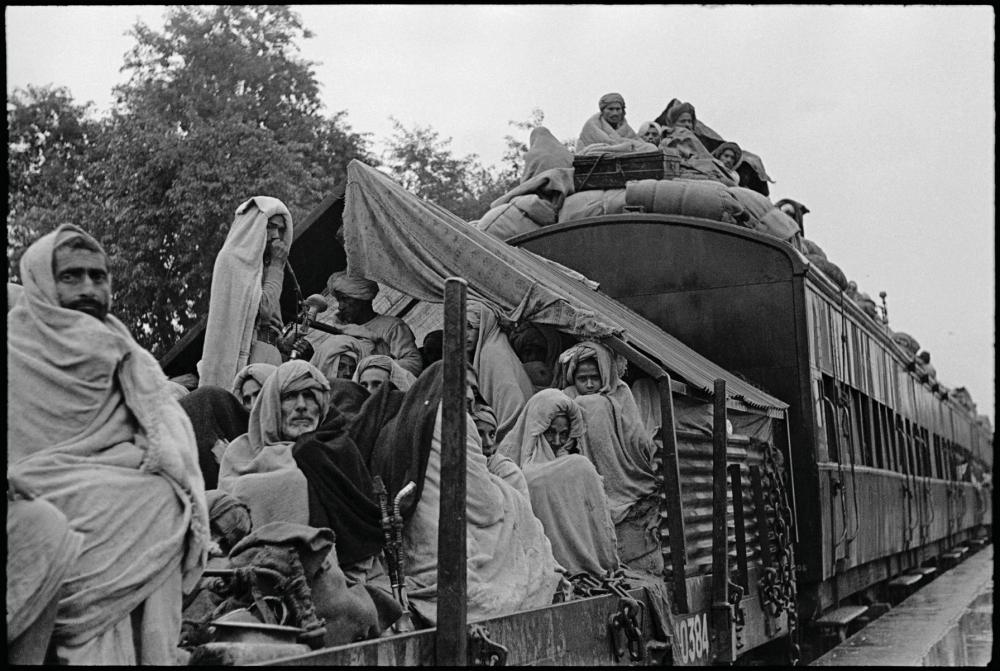कोशिश गोल्ड - मुक्त
The enduring trauma of partition
BBC History UK
|September 2022
In 1947, British India was split in two, sparking a wave of violence that defined the new nations for decades. On the 75th anniversary of partition, Kavita Puri looks at how subsequent generations in south Asia and the UK have come to terms with its legacy

75 years ago, Britain's control over 400 million people on the Indian subcontinent ceased. It was the beginning of the end of the British empire. On 14 August 1947, people in Pakistan proudly marked the creation of the new dominion with a ceremony in Karachi, attended by the governor-general Muhammed Ali Jinnah. A day later, led by India's new prime minister Jawaharlal Nehru, Indians celebrated the British departure. British India had been carved up into two countries, Pakistan and India, largely along religious lines. The former included East Pakistan, separated from West Pakistan by almost 1,000 miles.
The movement for independence had begun many decades earlier. The British had formally arrived in India in the 1600s, establishing trading posts under the British East India Company, and India came under direct British rule in 1858. The nationalist movement began in the late 19th century and gained huge momentum following the Second World War - a conflict in which 2.5 million soldiers from what is today India, Pakistan and Bangladesh served.
As religious identity became stronger stoked, many commentators have argued, by British policies of divide and rule - two competing visions of independence emerged, which grew increasingly politicised along religious lines. The Congress Party, led by Nehru, wanted India to remain united in a secular state once the British left. But by 1940, Jinnah, leader of the Muslim League, felt that India's almost 100 million Muslims - a quarter of the population - would be marginalised by the Hindu majority. He wanted safeguards to be put in place, and even a separate homeland.
DIVIDED COMMUNITIES India and Pakistan after partition

यह कहानी BBC History UK के September 2022 संस्करण से ली गई है।
हजारों चुनिंदा प्रीमियम कहानियों और 10,000 से अधिक पत्रिकाओं और समाचार पत्रों तक पहुंचने के लिए मैगज़्टर गोल्ड की सदस्यता लें।
क्या आप पहले से ही ग्राहक हैं? साइन इन करें
BBC History UK से और कहानियाँ

BBC History UK
Hymn to life
Scripted by Alan Bennett and directed by Nicholas Hytner - a collaboration that produced The Madness of King George and The History Boys – The Choral is set in 1916.
1 min
December 2025

BBC History UK
Helen Keller
It was when I was eight or nine years old, growing up in Canada, and I borrowed a book about her from my local library.
2 mins
December 2025

BBC History UK
Spain's miracle
The nation's transition from dictatorship to democracy in the late 1970s surely counts as one of modern Europe's most remarkable stories. On the 50th anniversary of General Franco's death, Paul Preston explores how pluralism arose from the ashes of tyranny
8 mins
December 2025

BBC History UK
Just how many Bayeux Tapestries were there?
As a new theory, put forward by Professor John Blair, questions whether the embroidery was unique, David Musgrove asks historians whether there could have been more than one 'Bayeux Tapestry'
7 mins
December 2025

BBC History UK
In service of a dictator
HARRIET ALDRICH admires a thoughtful exploration of why ordinary Ugandans helped keep a monstrous leader in power despite his regime's horrific violence
2 mins
December 2025

BBC History UK
The Book of Kells is a masterwork of medieval calligraphy and painting
THE BOOK OF KELLS, ONE OF THE GREATEST pieces of medieval art, is today displayed in the library of Trinity College Dublin.
3 mins
December 2025

BBC History UK
Passing interest
In his new book, Roger Luckhurst sets about the monumental task of chronicling the evolution of burial practices. In doing so, he does a wonderful job of exploring millennia of deathly debate, including the cultural meanings behind particular approaches.
1 mins
December 2025

BBC History UK
Is the advance of AI good or bad for history?
As artificial intelligence penetrates almost every aspect of our lives, six historians debate whether the opportunities it offers to the discipline outweigh the threats
8 mins
December 2025

BBC History UK
Beyond the mirage
All serious scholarship on ancient Sparta has to be conducted within the penumbra of the 'mirage Spartiate', a French term coined in 1933 to describe the problem posed by idealised accounts of Sparta.
1 mins
December 2025

BBC History UK
He came, he saw... he crucified pirates
Ancient accounts of Julius Caesar's early life depict an all-action hero who outwitted tyrants and terrorised bandits. But can they be trusted? David S Potter investigates
10 mins
December 2025
Translate
Change font size

